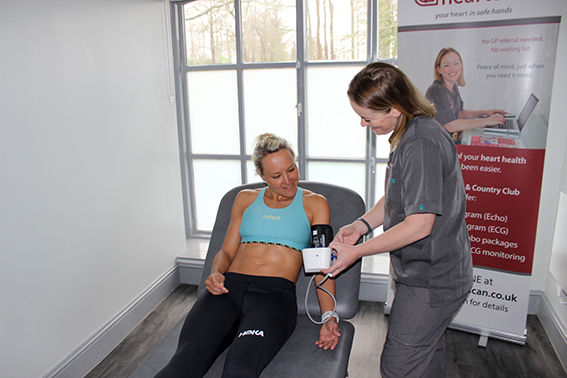How to protect your heart as an Athlete
- Your Heart Scan

- Apr 19, 2023
- 2 min read
Updated: May 22, 2023
As an athlete, it's essential to take care of your heart health to ensure you can continue participating in your chosen sport for as long as possible. However, heart problems can still occur, even in the fittest of individuals. In this blog post, we'll explore some of the heart health pitfalls that athletes face and how to avoid them while training.
Athletes and Heart Problems
Athletes, especially those involved in high-intensity sports such as basketball, football, and long-distance running, are at increased risk of developing heart problems. These issues can arise due to a combination of genetic predisposition, high-intensity training, and various other factors such as environmental pollution, poor diet, and lifestyle choices.
One of the most common heart problems that athletes face is hypertrophic cardiomyopathy (HCM), a condition characterized by an enlarged heart muscle. HCM can cause various symptoms, including chest pain, shortness of breath, and fainting, and can ultimately lead to sudden cardiac death.
Other heart problems that athletes may experience include coronary artery disease (CAD), arrhythmias, and heart valve problems. All of these conditions can have severe consequences, and it's crucial for athletes to take steps to avoid them.
How to avoid Heart Health pitfalls while training
Fortunately, there are several things that athletes can do to avoid heart health pitfalls while training. These include:
Get Regular Check-Ups
One of the most important things that athletes can do to maintain their heart health is to get regular check-ups. These check-ups should include a physical examination, an electrocardiogram (ECG), and an echocardiogram to check the structure and function of the heart.

Know Your Family History
Athletes with a family history of heart problems, such as HCM, should be especially vigilant about monitoring their heart health. If you have a family history of heart problems, talk to your doctor about what you can do to reduce your risk.
Follow a Heart-Healthy Diet
A heart-healthy diet is essential for maintaining good heart health. Athletes should aim to eat a diet rich in fruits, vegetables, whole grains, lean proteins, and healthy fats. Avoiding processed foods, sugary drinks, and excess salt can also help improve heart health.
Maintain a Healthy Weight
Maintaining a healthy weight is crucial for reducing the risk of heart problems. Athletes should aim to maintain a healthy weight through a combination of a healthy diet and regular exercise.
Avoid Overtraining
Overtraining can put a significant strain on the heart, increasing the risk of heart problems. Athletes should take rest days to allow the body to recover and avoid training too intensely for too long.
Stay Hydrated
Dehydration can put a strain on the heart, so it's essential for athletes to stay hydrated during training and competition. Drinking plenty of water and electrolyte-rich drinks can help maintain optimal hydration levels.
Conclusion
Heart problems can be a serious issue for athletes, but by taking steps to maintain good heart health, athletes can reduce their risk of developing these conditions. Regular check-ups, following a heart-healthy diet, maintaining a healthy weight, avoiding overtraining, and staying hydrated are all essential for maintaining good heart health. By prioritizing heart health, athletes can continue to participate in their chosen sport for years to come.











Comentários